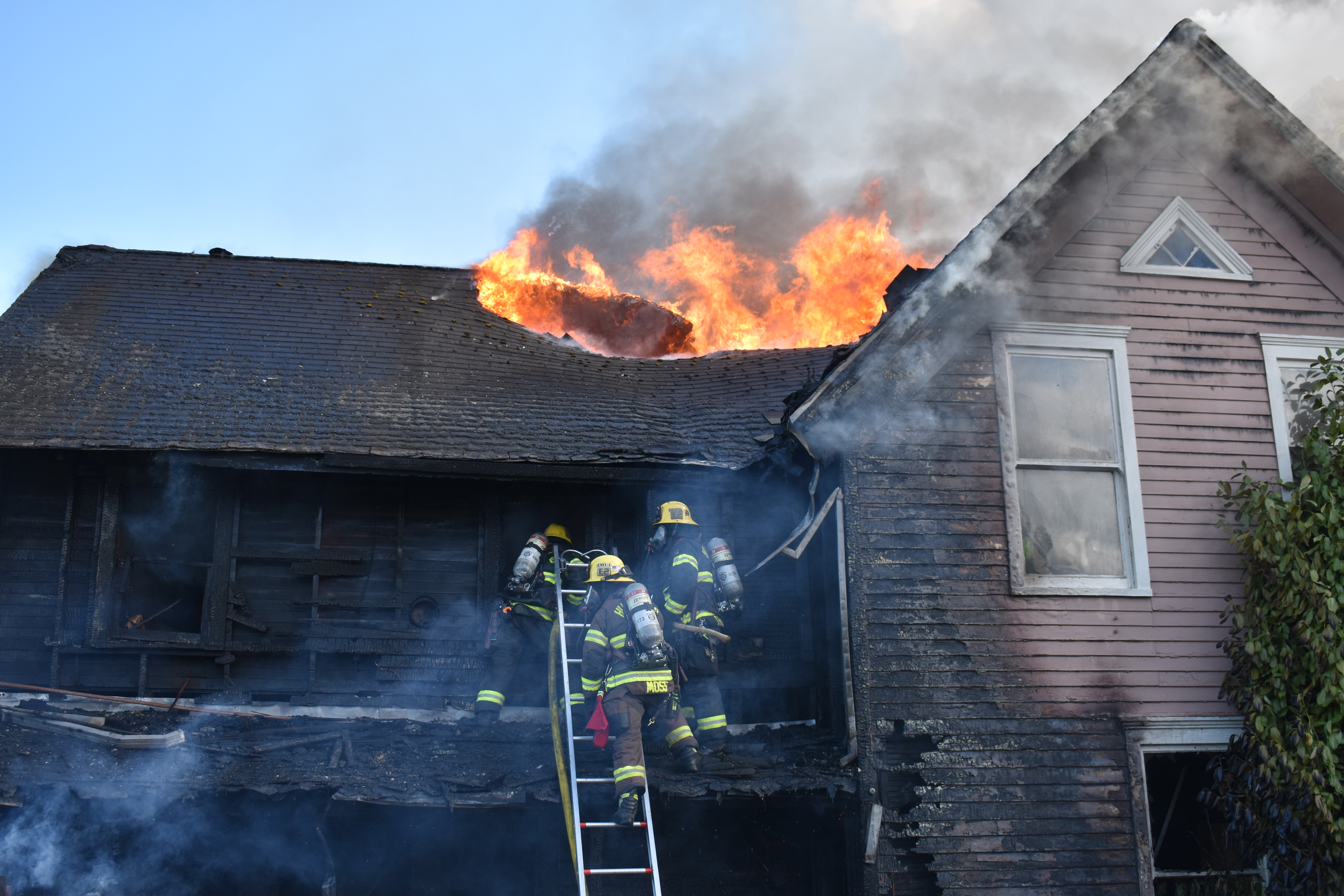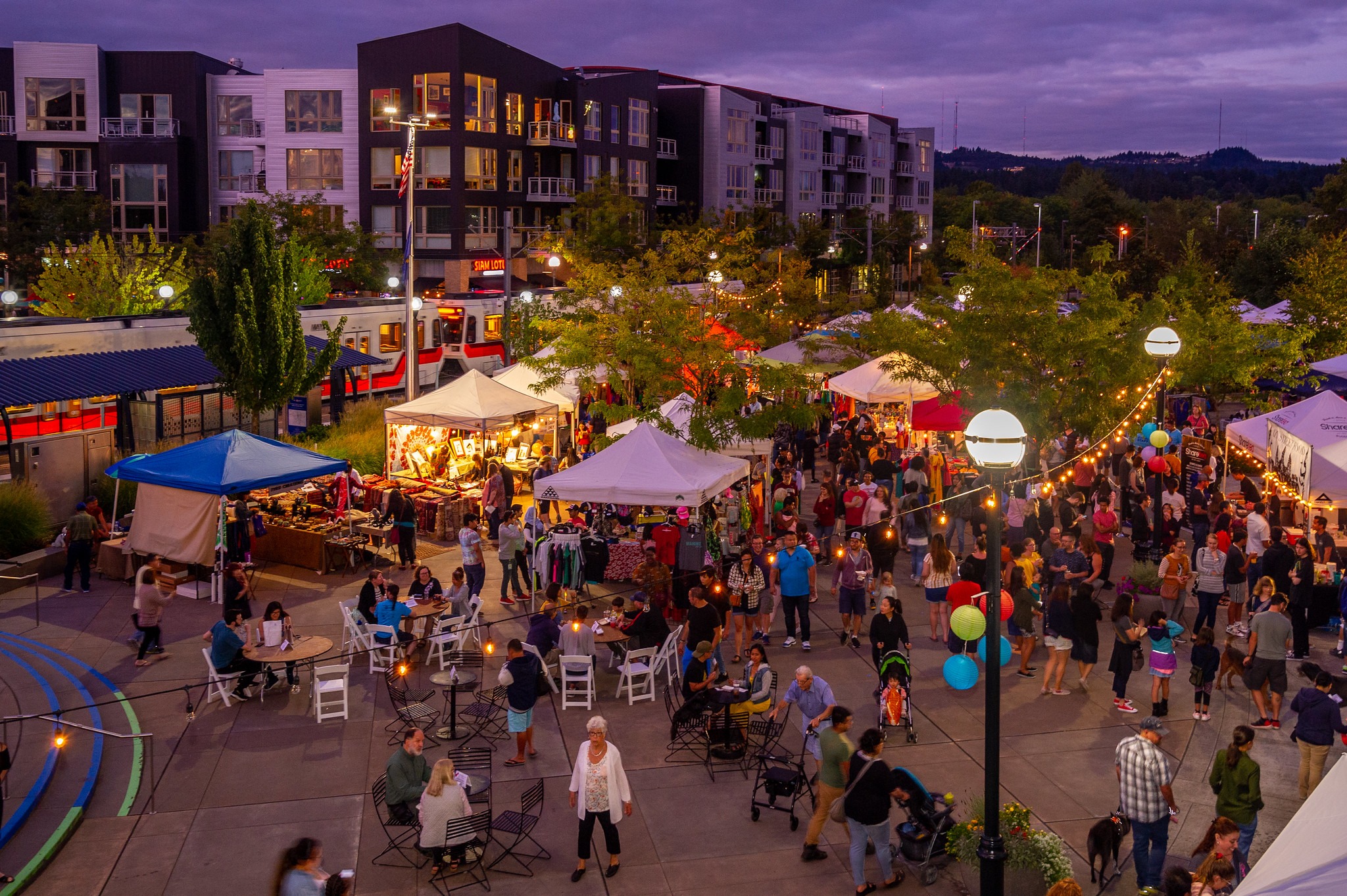Gov. Kotek signs laws to boost housing supply but more work to be done to solve ‘crisis’
Published 8:30 am Tuesday, July 29, 2025

- Gov. Tina Kotek signs housing production laws at Century Commons in Hillsboro, a new 18-unit affordable housing project built by Habitat for Humanity on July 28, 2025. (Alex Baumhardt/Oregon Capital Chronicle)
Kotek signed five new laws Monday meant to spur the construction of ‘middle housing’ and to make it easier for developers to build quickly
Gov. Tina Kotek wants tens of thousands more homes, duplexes and apartments built across Oregon every year for the next decade to meet pent-up demand and to create more affordable housing markets.
Trending
To do this, she signed five new laws Monday meant to spur the construction of “middle housing” such as duplexes, triplexes and townhomes, modular homes and to make it easier for developers to build quickly.
Oregon’s shortage of available homes, and especially of affordable homes, results from decades of underbuilding that have led to a multitude of problems including a growing homeless population, unaffordable rents and median home prices statewide topping more than half a million dollars.
“It’s important to remember that Oregon’s housing affordability and supply crisis will not be solved overnight,” Kotek said at a ceremonial bill signing Monday. “Today’s not a victory lap. I believe in celebrating, but it’s just for a day, and then we’re gonna get back to work, because we have a lot to do.”
She hosted the bill signing at Century Commons in Hillsboro, a new 18-unit affordable housing project built by Habitat for Humanity. Qualifying home buyers will have their mortgage payments capped at 30% to 35% of their monthly income, according to Habitat officials, and any amount beyond that will be subsidized by the nonprofit and its partners.
The state needs about 30,000 more homes each year to meet demand, mostly in the Portland and Willamette Valley region, according to a January report from the Office of Economic Analysis at the Oregon Department of Administrative Services.
Kotek set a goal of getting 36,000 new homes built per year, but developers pulled only about 14,000 residential permits last year — slightly more than a third of the way to that goal — and most of those permits were for single-family homes.
Trending
“We need modular, we need traditional sticks, we need more middle housing. We need all of those things,” Kotek said.
Construction on houses, apartments and multifamily buildings in Oregon rose in the 1970s then plunged in the 1980s and never recovered, according to the Seattle-based, nonprofit research and policy organization Sightline Institute. By the 2010s, the share of new homes built in Oregon that were in apartments and multifamily buildings hit its lowest average in 60 years and homebuilding never fully recovered.
New laws
The homes at the Century Commons site are an example of what more city neighborhoods could look like under House Bill 2138, among the bills to speed up housing production that Kotek signed Monday.
Of the 18 units being built at the Hillsboro site that is surrounded by single family homes, some are duplexes, some are accessible single-level units for people with disabilities and others are single family homes. House Bill 2138 prevents local governments from blocking the construction of duplexes and triplexes on land zoned for single-family homes. It builds on an earlier law Kotek championed as speaker of the House that applied to large cities.
Another law Kotek signed, House Bill 2258, allows the state more control over local development decisions and streamlines planning. Under the new law, the state Land Conservation and Development Commission and Department of Consumer and Business Services will be able to preapprove housing plans for apartments, single-unit dwellings, duplexes and townhomes and create land use and design standards for the plans that all developers can follow for a quick process. Kotek said she hopes this provides clarity and predictability for developers and local governments, and reduces red tape.
Two bills Kotek signed address affordability in creating new housing. House Bill 3031 creates a state program to provide money to local governments and tribes to fund roads, waterlines, wastewater and stormwater infrastructure projects needed to expand sites where homes can be built.
Senate Bill 684 creates a state loan program to provide long-term, low-interest, state-backed financing for mixed-income residential housing projects so developers aren’t competing for limited federal loans or being priced out by high borrowing costs. Similar programs exist in Atlanta, Georgia, and Montgomery County, Maryland.
“There are thousands of new units being introduced that aren’t penciling,” Sen. Khanh Phạm, D-Portland, said at the event Monday. Phạm sponsored the bill during the Legislative session.
“Projects that used to pencil even a few years ago are no longer penciling because of the high interest rates,” she said.
Lastly, Kotek signed House Bill 3145, sponsored by Rep. Pam Marsh, D-Ashland, that sets aside $25 million in state funds to boost modular and pre-fabricated factory-produced housing to meet urgent needs in parts of the state.
Kotek said she’s counting on her new Housing Accountability and Production Office to scrutinize projects and new city and county housing production plans, and to act as a liaison between developers, local governments and state agencies to find and streamline funding.
“We have put a lot of tools in front of local governments to build housing,” Kotek said. “I want to make sure they’re taking full advantage of them.”








